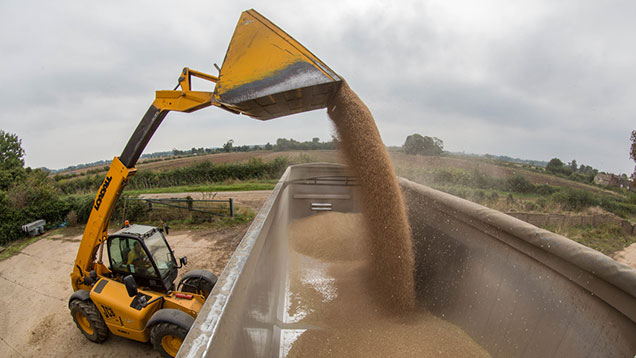Growers urged to lobby MPs on costly EU futures market rules
 © Tim Scrivener
© Tim Scrivener Farmers are being urged to lobby their MPs to avoid farmers being caught up in complex and costly regulation of financial markets.
The EU Markets in Financial Instruments Directive II (MiFID II) is due to come into force in January 2017. It is a huge regulatory reform following the 2008 financial crash and aims to ensure that banks do not have to be bailed out with public money.
See also: Defra puts UK wheat harvest at 16.129m tonnes
It would also restrict sharp upward movements in commodity prices, requiring contracts to be unwound if prices rise by more than £18 in a day.
The NFU has been working to get exemptions in the standards drafted by the European Securities and Markets Authority (ESMA), so that farmers are not caught by requirements designed to limit speculation in commodity markets.
The directive still has to be approved by the EU Parliament and the council of finance ministers but once this is done, member states’ financial regulators would have some latitude to interpret and implement the rules, said NFU chief combinable crops advisor Guy Gagen.
The NFU is pressing the UK regulator, the Financial Conduct Authority (FCA), for a straightforward and inexpensive route to allow exemption from regulation for farmers affected.
In its original state the directive required that farmers using forward contracts and futures were to be regulated as financial operators, and could only seek exemptions through onerous and expensive routes to prove they should not be regulated in a similar way to banks and other financial institutions.
Farmers using the futures market needed to make their MPs aware of the economic and bureaucratic burden this directive could bring, said the NFU.
“While the agricultural industry represents a relatively small percentage of the trade on futures markets, MiFID II has the potential to undermine the way farmers trade their grain,” said Mr Gagen.
It was a big win for the NFU to have influenced this guidance, affecting all producers and processors of wide range of agricultural and industrial commodities across the EU economy, he said.
“We are still some way off seeing how the FCA will implement this directive in the UK, so we have time for farmers to talk to their local MP about why it needs to be done with as little disruption to producers as possible. When this issue comes up in government discussions, we need the right people to be aware of the impact on the ground.”
Although the directive was not finalised, the threat that simple forward ex-farm trades could also have been caught by the rules had receded, said Mr Gagen.
